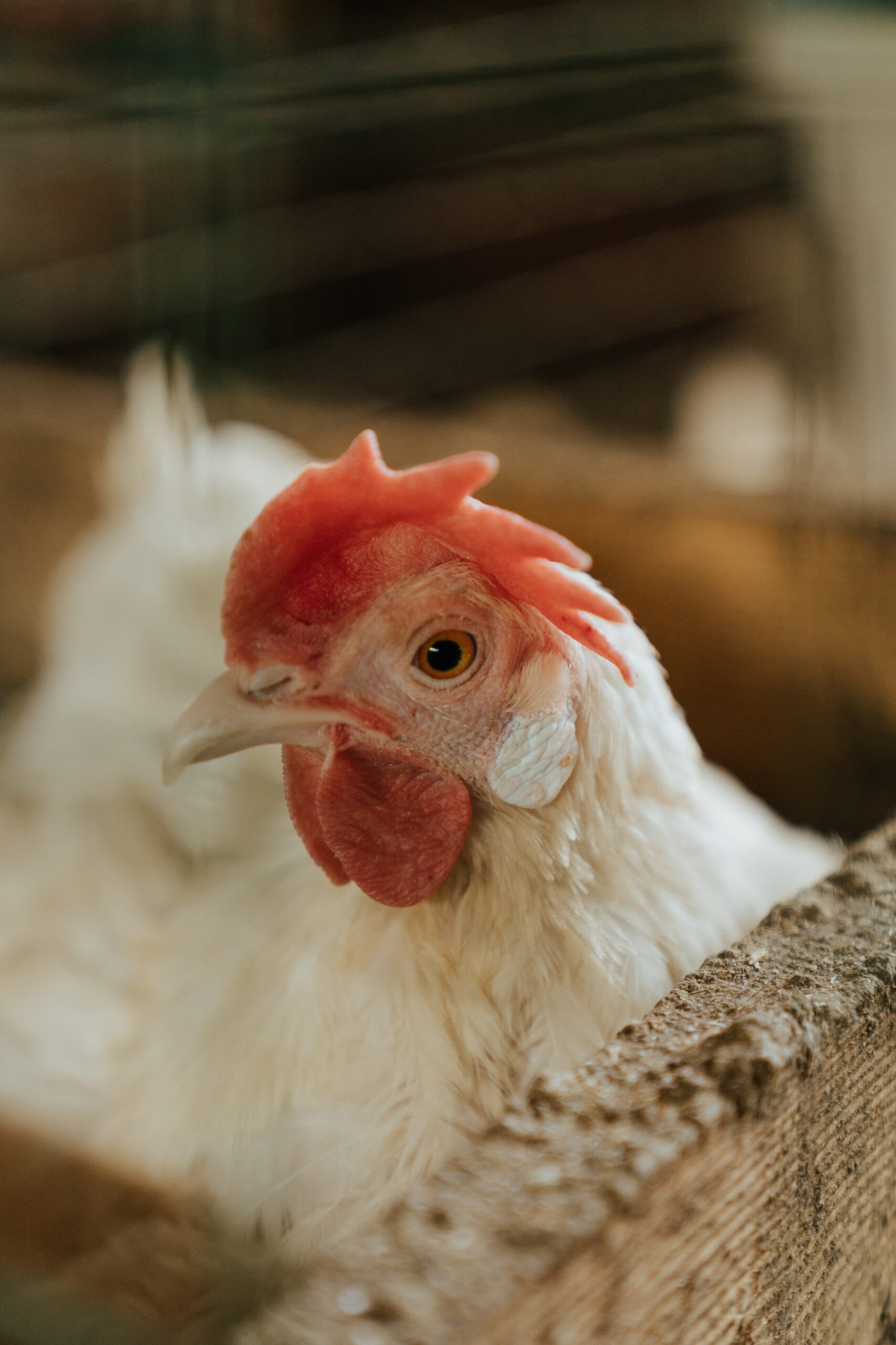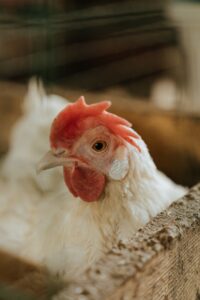
We would love to receive your feedback about our website.
This short survey will only take a few minutes.
Thank you!
When we hear the word sustainability, we tend to imagine a green leaf or a windmill. However, sustainability is such a broad concept, it means much more than taking care of the environment. In fact, we say that something is sustainable when it contributes favourably (or neutrally) to our planet, our society and our economy.
Thus, why is the European poultry sector considered a sustainable sector? Because of the great efforts that European farmers and all actors along the production chain make every day to contribute to all three pillars of sustainability: environment, society, economy. Over the years, continuous research on innovation and technological improvements on-field, as well as compliance with the demanding European standards, have ensured that the European poultry sector is fully committed to becoming more and more sustainable.
Firstly, the industry tries to be as environmentally neutral as possible. This is based on the EU directive on industrial emissions, which contains strict rules to control the maximum level of environmental emissions in poultry meat production. These requirements apply to both farms and slaughterhouses. In addition, the EU poultry sector uses the latest scientific findings and state-of-the-art technology to continuously improve sustainability and environmental impact. Finally, compared to other foodstuffs, the carbon footprint and water consumption of poultry meat are low and EU poultry producers are working to further optimise the use of natural resources.
Secondly, the European poultry sector is respectful of people and animals. In terms of animal welfare,the sector follows quite strict regulations to ensure the health and welfare of the animals. This means that poultry farms count with innovative technologies such as monitoring the feed, temperature and weight conditions needed to ensure the health of the animals. On the other hand, it is a sector committed to food safety and food quality, offering consumers a safe, versatile, nutritious and delicious product which is a fundamental part of a balanced diet.
Finally, following on from the third pillar of sustainability, the economy, the European poultry sector fosters economic growth and strengthens local communities by creating more than 370,000 direct jobs in rural and semi-rural areas across Europe. Not only that, but more and more women have joined all kinds of jobs in the production chain, thus promoting equal gender opportunities in the world of work.
In this way, the European poultry sector is supporting the European Farm to Fork strategy, which aims to achieve a more sustainable, healthier and fairer food system.
Thus, both the European poultry sector and the Farm to Fork strategy seek to accelerate our transition to a healthier and more sustainable European food system that should:

Picture by BVG Germany
When we hear the word sustainability, we tend to imagine a green leaf or a windmill. However, sustainability is such a broad concept, it means much more than taking care of the environment. In fact, we say that something is sustainable when it contributes favourably (or neutrally) to our planet, our society and our economy.
Thus, why is the European poultry sector considered a sustainable sector? Because of the great efforts that European farmers and all actors along the production chain make every day to contribute to all three pillars of sustainability: environment, society, economy. Over the years, continuous research on innovation and technological improvements on-field, as well as compliance with the demanding European standards, have ensured that the European poultry sector is fully committed to becoming more and more sustainable.
Firstly, the industry tries to be as environmentally neutral as possible. This is based on the EU directive on industrial emissions, which contains strict rules to control the maximum level of environmental emissions in poultry meat production. These requirements apply to both farms and slaughterhouses. In addition, the EU poultry sector uses the latest scientific findings and state-of-the-art technology to continuously improve sustainability and environmental impact. Finally, compared to other foodstuffs, the carbon footprint and water consumption of poultry meat are low and EU poultry producers are working to further optimise the use of natural resources.

Picture by BVG Germany
Secondly, the European poultry sector is respectful of people and animals. In terms of animal welfare,the sector follows quite strict regulations to ensure the health and welfare of the animals. This means that poultry farms count with innovative technologies such as monitoring the feed, temperature and weight conditions needed to ensure the health of the animals. On the other hand, it is a sector committed to food safety and food quality, offering consumers a safe, versatile, nutritious and delicious product which is a fundamental part of a balanced diet.
Finally, following on from the third pillar of sustainability, the economy, the European poultry sector fosters economic growth and strengthens local communities by creating more than 370,000 direct jobs in rural and semi-rural areas across Europe. Not only that, but more and more women have joined all kinds of jobs in the production chain, thus promoting equal gender opportunities in the world of work.
In this way, the European poultry sector is supporting the European Farm to Fork strategy, which aims to achieve a more sustainable, healthier and fairer food system.
Thus, both the European poultry sector and the Farm to Fork strategy seek to accelerate our transition to a healthier and more sustainable European food system that should:
When we hear the word sustainability, we tend to imagine a green leaf or a windmill. However, sustainability is such a broad concept, it means much more than taking care of the environment. In fact, we say that something is sustainable when it contributes favourably (or neutrally) to our planet, our society and our economy.
Thus, why is the European poultry sector considered a sustainable sector? Because of the great efforts that European farmers and all actors along the production chain make every day to contribute to all three pillars of sustainability: environment, society, economy. Over the years, continuous research on innovation and technological improvements on-field, as well as compliance with the demanding European standards, have ensured that the European poultry sector is fully committed to becoming more and more sustainable.
Firstly, the industry tries to be as environmentally neutral as possible. This is based on the EU directive on industrial emissions, which contains strict rules to control the maximum level of environmental emissions in poultry meat production. These requirements apply to both farms and slaughterhouses. In addition, the EU poultry sector uses the latest scientific findings and state-of-the-art technology to continuously improve sustainability and environmental impact. Finally, compared to other foodstuffs, the carbon footprint and water consumption of poultry meat are low and EU poultry producers are working to further optimise the use of natural resources.
Secondly, the European poultry sector is respectful of people and animals. In terms of animal welfare,the sector follows quite strict regulations to ensure the health and welfare of the animals. This means that poultry farms count with innovative technologies such as monitoring the feed, temperature and weight conditions needed to ensure the health of the animals. On the other hand, it is a sector committed to food safety and food quality, offering consumers a safe, versatile, nutritious and delicious product which is a fundamental part of a balanced diet.
Finally, following on from the third pillar of sustainability, the economy, the European poultry sector fosters economic growth and strengthens local communities by creating more than 370,000 direct jobs in rural and semi-rural areas across Europe. Not only that, but more and more women have joined all kinds of jobs in the production chain, thus promoting equal gender opportunities in the world of work.
In this way, the European poultry sector is supporting the European Farm to Fork strategy, which aims to achieve a more sustainable, healthier and fairer food system.
Thus, both the European poultry sector and the Farm to Fork strategy seek to accelerate our transition to a healthier and more sustainable European food system that should:

Picture by BVG Germany
So, “European Poultry: Sustainably good for you and the planet” is not only the motto of this promotional campaign, but a clear message to be spread in all your homes.
The European poultry meat sector is convinced that sustainability is key for our future food system. What does it mean to you?
We want it to mean a planet we care for, a society aware of the benefits of sustainable choices and a greener economy. This is what this programme and this campaign want to communicate and achieve, with everybody’s help and participation.
SUST EU POULTRY is a two-year promotion campaign supported by the European Commission and launched by three national poultry associations and their European umbrella association (from Germany, France and Spain) with the main goal of raising awareness among European consumers and professionals about the sustainability of the European poultry sector and a product of great quality.
Find more information about the project here
You can also learn more about sustainability of the sector by downloading our press kit here.
Additional information
PRESS CONTACT Ana María Martín ATLAS MARKETING STUDIO internacional@atlasmarketingstudio.com | CONTACT AVEC Federica Chiarella AVEC SECRETARIAT fc@avec-poultry.eu |
The content of the present advertising solely represents the opinion of the author and is the exclusive responsibility of the same.
The European Commission assumes no responsibility for the use that may be made of the information contained therein.
Funded by the European Union. Views and opinions expressed are however those of the author(s) only and do not necessarily reflect those of the European Union or the European Research Executive Agency (REA). Neither the European Union nor the granting authority can be held responsible for them. For guidance on balanced and healthy diets, please refer to the National Food Dietary Guidelines: https://knowledge4policy.ec.europa.eu/health-promotion-knowledge-gateway/food-based-dietary-guidelines-europe-source-documents-food_en

Funded by the European Union. Views and opinions expressed are however those of the author(s) only and do not necessarily reflect those of the European Union or the European Research Executive Agency (REA). Neither the European Union nor the granting authority can be held responsible for them. For guidance on balanced and healthy diets, please refer to the National Food Dietary Guidelines: https://knowledge4policy.ec.europa.eu/health-promotion-knowledge-gateway/food-based-dietary-guidelines-europe-source-documents-food_en

We would love to receive your feedback about our website.
This short survey will only take a few minutes.
Thank you!
No matter which European country the poultry meat comes from, consumers can always rely on food safety, environmental protection, and animal welfare. Being a major trading partner in the global poultry meat market, the EU has proved to be a role model by having some of the highest standards in the world.
This website uses cookies so that we can provide you with the best user experience possible. Cookie information is stored in your browser and performs functions such as recognising you when you return to our website and helping our team to understand which sections of the website you find most interesting and useful.
Strictly Necessary Cookie should be enabled at all times so that we can save your preferences for cookie settings.
If you disable this cookie, we will not be able to save your preferences. This means that every time you visit this website you will need to enable or disable cookies again.